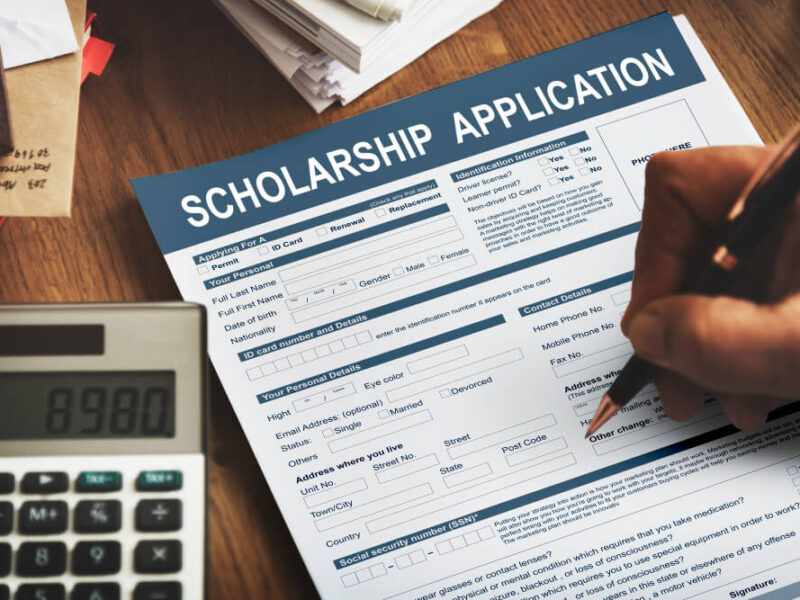Winning a scholarship to study abroad can be life-changing, offering you the chance to advance your education, gain global exposure, and open doors to endless opportunities. However, securing a scholarship is a highly competitive process that requires careful planning, preparation, and persistence and often times can be a frustrating process for scholarship seekers.
If you’re serious about pursuing scholarships, the following to-do list outlines essential steps to boost your chances of success. Whether you’re applying to schools in the US, Europe, or beyond, this guide will help you stay organized and prepared throughout the journey.
1. Get Your International Passport
An international passport is your gateway to studying abroad. Without it, you can’t proceed with most scholarship applications or admission processes.
Why It Matters:
- Scholarships often require your passport details as part of the application process.
- Universities need it to issue admission letters and process your student visa.
Action Step:
Apply for your passport early to avoid unnecessary delays when opportunities arise.
2. Take TOEFL, GRE, or IELTS Exams
Standardized tests like the TOEFL, GRE, and IELTS play a significant role in the scholarship application process, especially for programs in English-speaking countries.
Why It Matters:
- English proficiency tests like TOEFL or IELTS are often mandatory for international students.
- GRE scores can make your application stand out, particularly for US-based scholarships.
Action Step:
- Research which tests are required for your desired schools and programs.
- Prepare thoroughly using online resources, practice tests, and study guides.
- Aim for high scores to increase your competitiveness.
3. Request Recommendation Letters from Past Lecturers
Strong recommendation letters from your previous lecturers can significantly impact your scholarship application.
Why It Matters:
- They provide insight into your academic abilities, work ethic, and potential.
- Some scholarships require multiple recommendation letters.
Action Step:
- Reach out to your lecturers early to give them enough time to write compelling letters.
- Provide them with your CV, transcripts, and details about the scholarship or program to help them tailor their recommendations.
4. Obtain Your Undergraduate Transcript
Your academic transcript is a vital document that showcases your academic performance throughout your undergraduate studies.
Why It Matters:
- Universities and scholarship boards need it to evaluate your eligibility.
- Some scholarships have GPA cutoffs, so your transcript helps assess your qualifications.
Action Step:
- Contact your school’s registrar office to request your transcript.
- Ensure the document is official, sealed, and free from errors.
5. Research Schools That Offer Your Course
Not all schools offer the specific course you’re interested in, so you need to carefully identify institutions that align with your academic and career goals.
Why It Matters:
- Applying to schools that specialize in your field increases your chances of acceptance.
- You can target scholarships designed for students in your area of study.
Action Step:
- Use online resources like university websites and global rankings to identify relevant schools.
- Narrow your list to institutions with strong research programs, faculty expertise, or funding opportunities in your field.
Related:
6. Write an Academic CV
Your academic CV is one of the first things admissions committees and scholarship boards review. It highlights your achievements, skills, and qualifications.
Why It Matters:
- A well-crafted CV can make a strong first impression.
- It demonstrates your suitability for the program and scholarship.
Action Step:
- Structure your CV to include sections such as education, research experience, publications, awards, and extracurricular activities.
- Use a professional format and keep it concise.
Related: How to Write an Academic CV for Admission/Scholarship Abroad
7. Send Emails to Professors
Establishing a connection with professors can give you an edge in securing a scholarship, especially for research-based programs.
Why It Matters:
- Professors often play a key role in selecting graduate students for funding or research assistantships.
- A positive impression can lead to mentorship opportunities and recommendations.
Action Step:
- Craft a professional and concise email introducing yourself, your background, and your research interests.
- Personalize each email to reflect the professor’s work and how it aligns with your goals.
8. Do a WES Evaluation (If You Have an HND or 2:2 CGPA)
For students with a Higher National Diploma (HND) or a second-class lower (2:2) degree, a World Education Services (WES) evaluation can improve your chances of acceptance.
Why It Matters:
- A WES evaluation translates your qualifications into the US or Canadian academic system, providing clarity to admissions committees.
- It can sometimes boost the perception of your credentials.
Action Step:
- Visit the WES website to start the evaluation process.
- Submit all required documents, such as transcripts and certificates.
9. Write a Strong Statement of Purpose (SOP) or Motivation Letter
Your SOP or motivation letter is your chance to tell your story and explain why you’re the perfect candidate for the program and scholarship.
Why It Matters:
- A compelling SOP can make you stand out among thousands of applicants.
- It demonstrates your commitment, goals, and fit for the program.
Action Step:
- Highlight your academic background, career aspirations, and reasons for choosing the program.
- Use clear, concise, and persuasive language.
- Proofread carefully to ensure your essay is free from errors.
Also read: Statement of Purpose: Types and Format Explained
10. Apply to as Many Public Scholarships as Possible
Public scholarships, funded by governments or organizations, often have more generous awards and broader eligibility criteria.
Why It Matters:
- Applying to multiple scholarships increases your chances of receiving funding.
- Public scholarships often cover tuition, living expenses, and other costs.
Action Step:
- Research scholarships offered by governments, NGOs, and international organizations (e.g., Fulbright, Chevening, Erasmus Mundus).
- Ensure you meet all requirements before applying.
11. Secure a Supervisor (If Required)
For research-based programs, securing a supervisor before applying can significantly improve your chances of acceptance.
Why It Matters:
- Supervisors often advocate for students during the selection process.
- Having a supervisor shows that you’ve taken the initiative to plan your research.
Action Step:
- Research faculty members whose work aligns with your interests.
- Reach out to them with a detailed email and attach your CV and research proposal.
12. Make Your Application Package Competitive
Some schools, especially in the US, do not require you to secure a supervisor in advance. However, you still need to ensure your application package stands out.
Why It Matters:
- Admissions committees look for well-rounded candidates with strong academic and personal qualities.
Action Step:
- Focus on submitting polished and complete documents, including your SOP, CV, transcripts, and test scores.
- Meet all deadlines and double-check your application before submission.
Final Thoughts
The path to winning a scholarship is not easy, but with determination and proper preparation, you can achieve your dream of studying abroad. Following this to-do list will help you stay organized and give you a competitive edge throughout the application process.
Remember, success in scholarship applications often depends on persistence. Apply to multiple opportunities, seek feedback on your applications, and continuously improve. Your dream is within reach—start today, and let your journey to academic and professional excellence begin!






